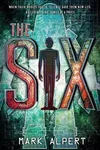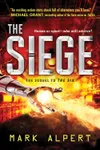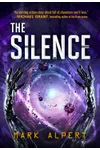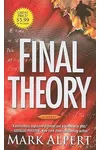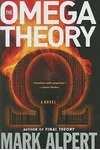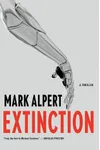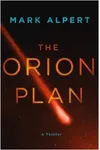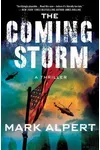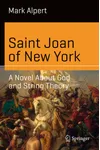Picture a New York storyteller who spins quantum physics into heart-pounding thrillers—meet Mark Alpert! A Princeton-educated astrophysicist turned novelist, Alpert has carved a unique niche in techno-thrillers and young adult fiction. With bestsellers like Final Theory and The Six, he transforms complex science into gripping narratives that captivate readers worldwide.
As a contributing editor at Scientific American, Alpert’s knack for simplifying mind-bending concepts like parallel universes shines through in his action-packed stories. His novels don’t just entertain—they spark curiosity about the wonders and dangers of cutting-edge technology.
The Making of Mark Alpert
Born in New York City, Mark Alpert’s love for science bloomed early. A self-proclaimed 'lifelong science geek,' he attended Stuyvesant High School and majored in astrophysics at Princeton University. His undergraduate thesis on relativity in a two-dimensional universe, published in the Journal of General Relativity and Gravitation, hinted at his future flair for blending science with storytelling. After earning an MFA in creative writing at Columbia, Alpert kicked off his career as a reporter for Fortune Magazine, covering emerging tech, before freelancing for Popular Mechanics and CNN. In 1998, he joined Scientific American, where his passion for science reignited, inspiring his leap into fiction.
Mark Alpert’s Unforgettable Stories
Alpert’s debut novel, Final Theory (2008), is a high-stakes thriller about Albert Einstein’s elusive unified field theory. Hailed by Booklist as one of the year’s best, it was translated into over 20 languages and optioned for film. Its sequel, The Omega Theory (2011), dives into quantum physics as religious fanatics threaten Doomsday. Alpert’s adult thrillers, like Extinction (2013), explore brain-computer interfaces and AI dangers, while The Furies (2014) uncovers a clan with a shocking genetic mutation.
In young adult fiction, Alpert shines with The Six (2015), a trilogy starter about six terminally ill teens whose minds are uploaded into U.S. Army robots to battle a rogue AI. Praised for its emotional depth and scientific grounding, it earned nominations for the Beehive and Nutmeg awards. Sequels The Siege (2016) and The Silence (2017) cement Alpert’s skill in crafting relatable characters amid futuristic stakes. His style—fast-paced, scientifically rich, and accessible—makes complex ideas thrilling for all ages.
Recent works like The Doomsday Show (2022) tackle environmental crises, with eco-terrorists targeting fossil-fuel tycoons. Alpert’s ability to weave real science into speculative plots keeps readers on edge, blending fact and fiction seamlessly.
Why Mark Alpert Matters
Mark Alpert’s impact lies in his ability to make science not just understandable but exhilarating. His novels bridge the gap between academic theory and pop culture, inspiring readers to ponder the ethical and existential questions of technology. For young adults, The Six series offers a gateway to STEM, showing science as a thrilling adventure. His work has influenced the techno-thriller genre, earning praise from peers like Douglas Preston and a loyal global readership.
Alpert’s legacy is also personal—he writes for his teenage kids and their generation, sparking curiosity about the universe. His 2021 William Faulkner Literary Competition win for Best Novel underscores his storytelling prowess.
About Mark Alpert
- Born: New York City
- Education: Astrophysics at Princeton, MFA at Columbia
- Key Works: Final Theory, The Six, The Doomsday Show
- Awards: 2021 William Faulkner Literary Competition, Best Novel
- Fun Fact: Proud member of Scientific American’s softball team, the Big Bangers
Snag Final Theory or The Six and dive into Mark Alpert’s electrifying techno-thriller world!
